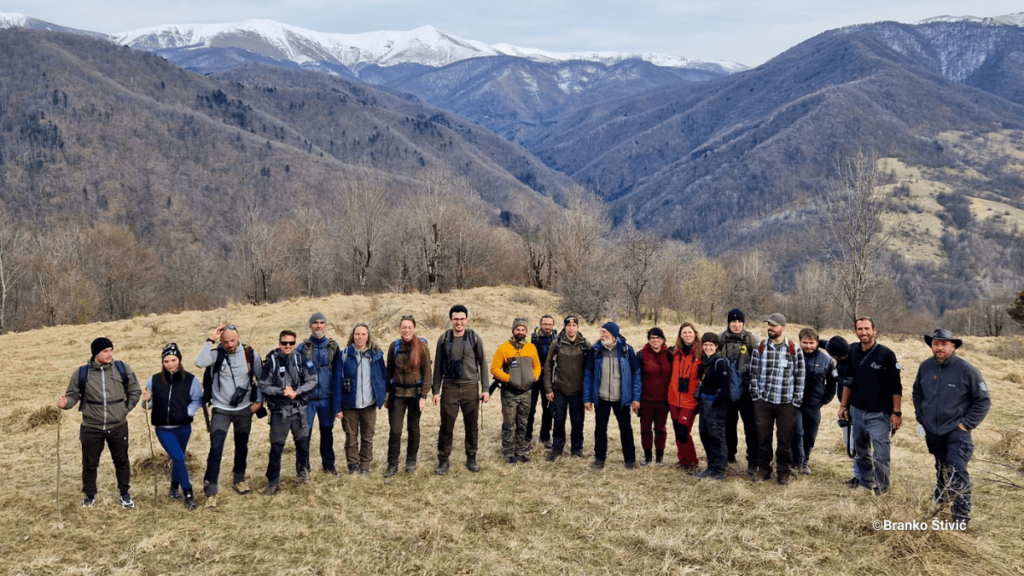Behind the rangers from a dozen European countries lie three days full of insights into how the rangers from the Romanian Ranger Association and Romanian NGOs deal with the European bison rewilding project and conflicts between humans and wild animals. Here’s what they experienced at our Rewilding & Human-Wildlife Conflict Training and the learnings they take with them.
The overriding theme: coexistence of humans and wild nature’s inhabitants, whose presence has an impact on people. After a brief introduction to the work of the National Agency for Protected Areas in Romania by Mihaela Nastase and a welcoming speech by Florin Halastauan and Mihai Gligan from the Romanian Ranger Association, it was straight into the topic: Rangers Matei Minculescu from WWF Romania and Catalin Josan from Rewilding Romania took the participants on a tour of their joint project to reintroduce the European bison in the south-east Carpathians.
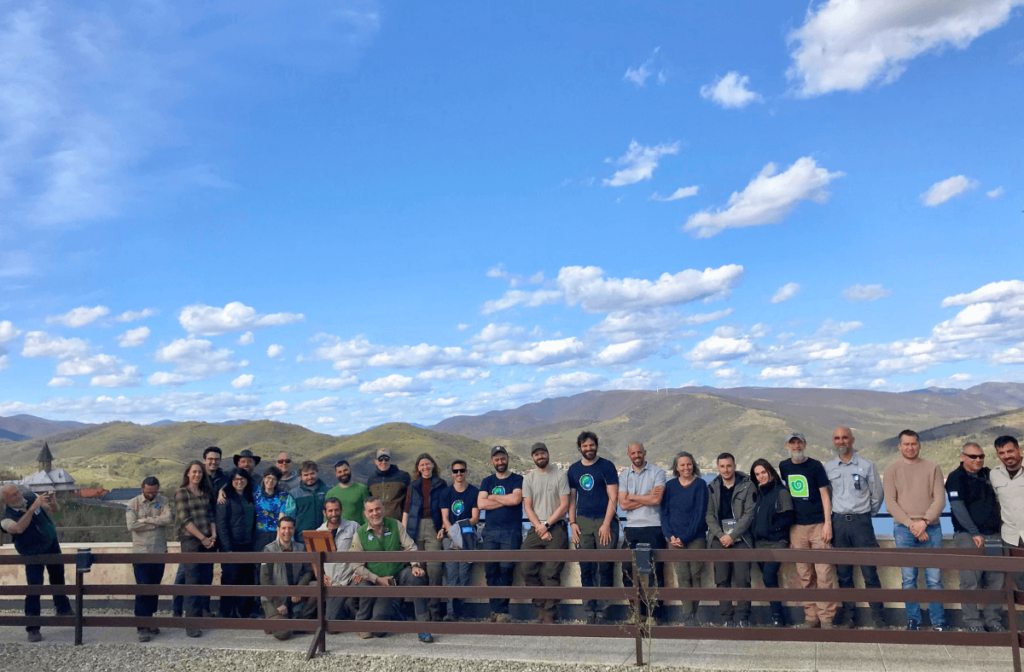
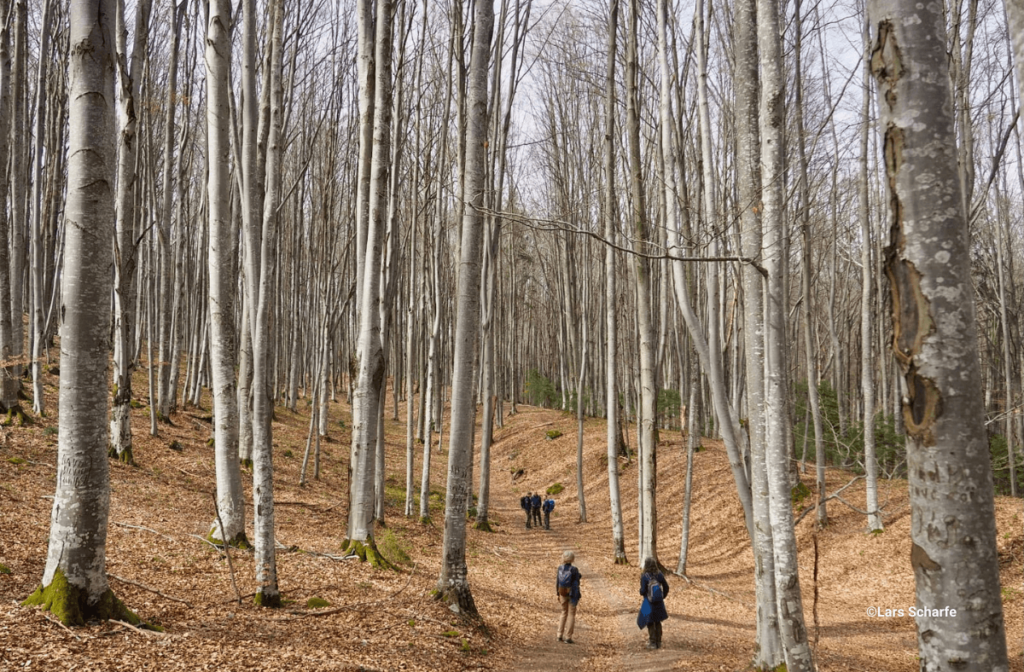
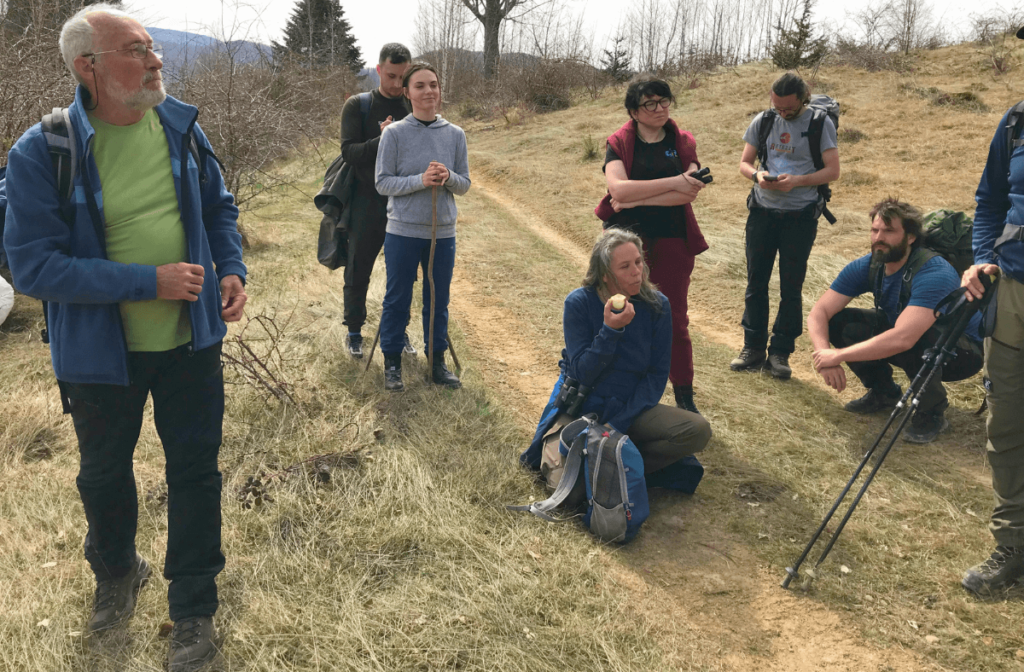
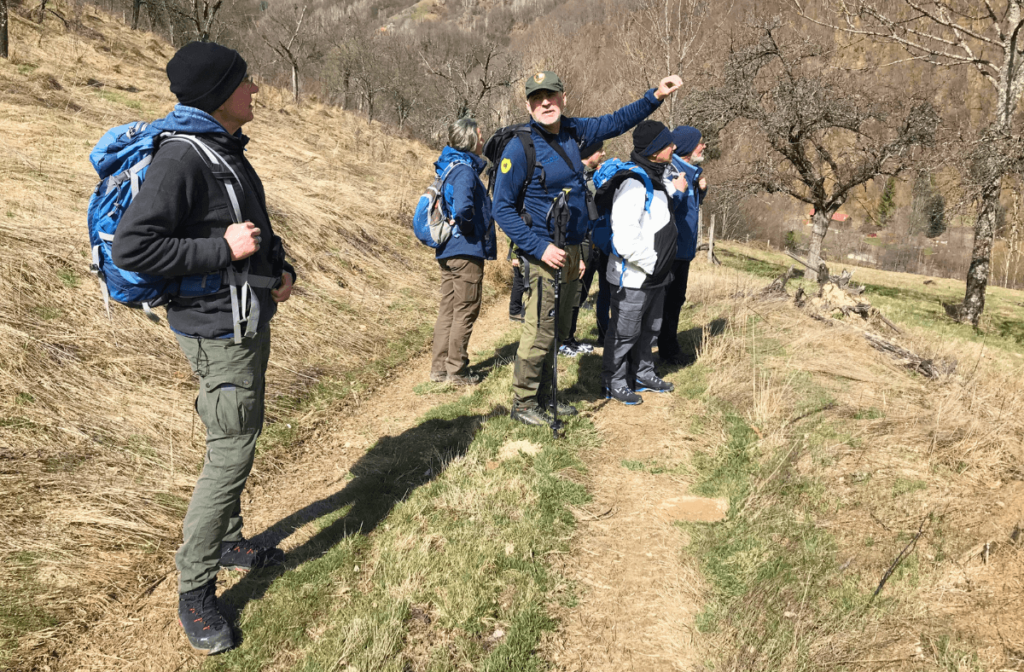
The rangers from Iceland to Israel and from France to Ukraine not only learnt theoretically about solutions for the coexistence of humans and wild animals as well as interventions in conflict situations. They were also taken on an excursion to learn about practices to enable people living alongside large Wildlife. French ranger Antony Porte found the approach of sustainable tourism in Bison reintroduction areas to create income possibilities for locals especially interesting.
Sustainable bison tourism as an inspiration for greater
acceptance of wildlife in the participants’ home regions
“Maybe it’s a solution for more acceptance of French people for wildlife”, he describes one of his learnings for his ranger work at home. Meanwhile Austrian ranger Sophie Bernet was interested to learn about how to reconcile the interests of shepherds and local residents with the conservation of wolves: “I can’t tell our livestock owners to put a shepherd and a livestock guarding dog in the herd, like it’s often practiced here. But from what I’ve heard from the rangers here about the issue, it’s still buzzing in my head,” she talks about the many learnings she still has to process.
Of course the over dozen participants were also on the trail of the big ones: bear and bison tracks accompanied further excursions in the region of the Țarcu Mountains, home to one of the largest bison rewilding project in Europe to date. The project is conducted by Rewilding Romania and WWF Romania. It aims not only at reintroducing this keystone species in the European ecosystems because of its important role for biodiversity and balance between forest and grassland habitats: “Bison means business” is how the partners describe the aim of generating income for the local communities.
In Romania, large carnivores have never been eradicated,
so the inhabitants are used to coexisting with wolves, bears and lynxes
Although this impressive species, as well as bears and wolves, obviously had other businesses than showing themselves, the group of participants took away impressive insights, experiences and encounters. In further presentations, they learnt about herd protection measures and conflict management in Grădiștea Muncelului-Cioclovina Natural Park and Piatra Craiului National Park. Ways for people and large predators to coexist, which Romanians have never forgotten unlike the inhabitants of many other European countries: Wolves, for example, have never been eradicated here.
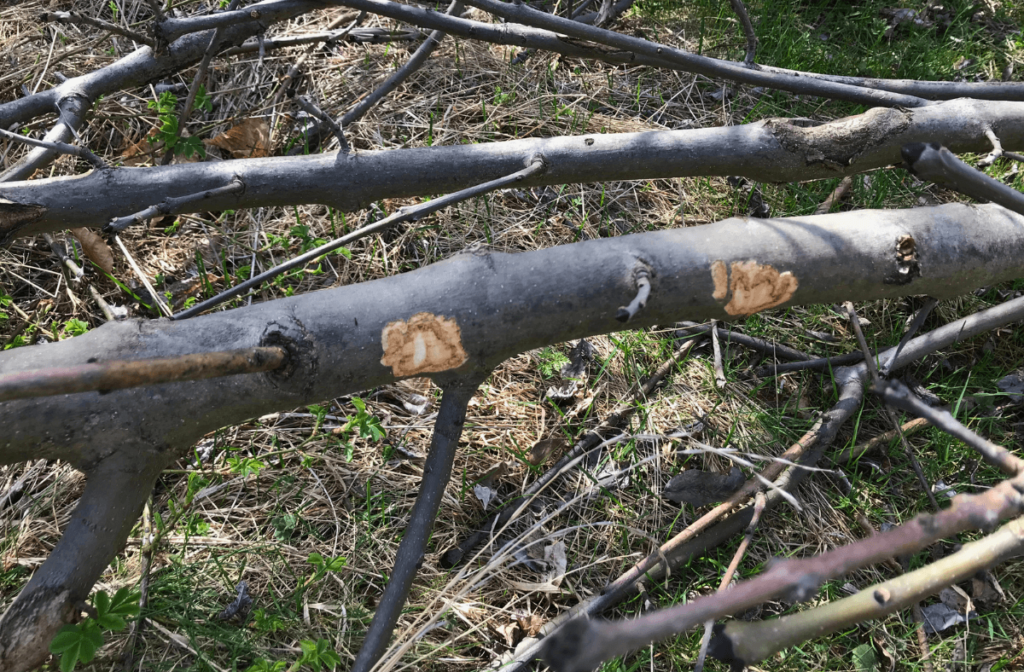
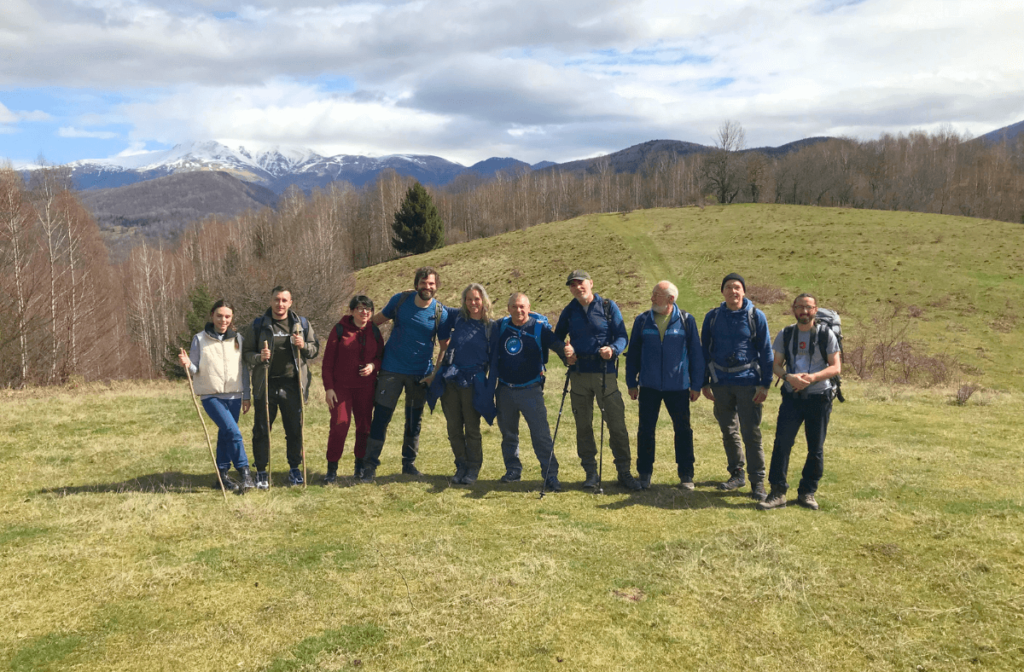
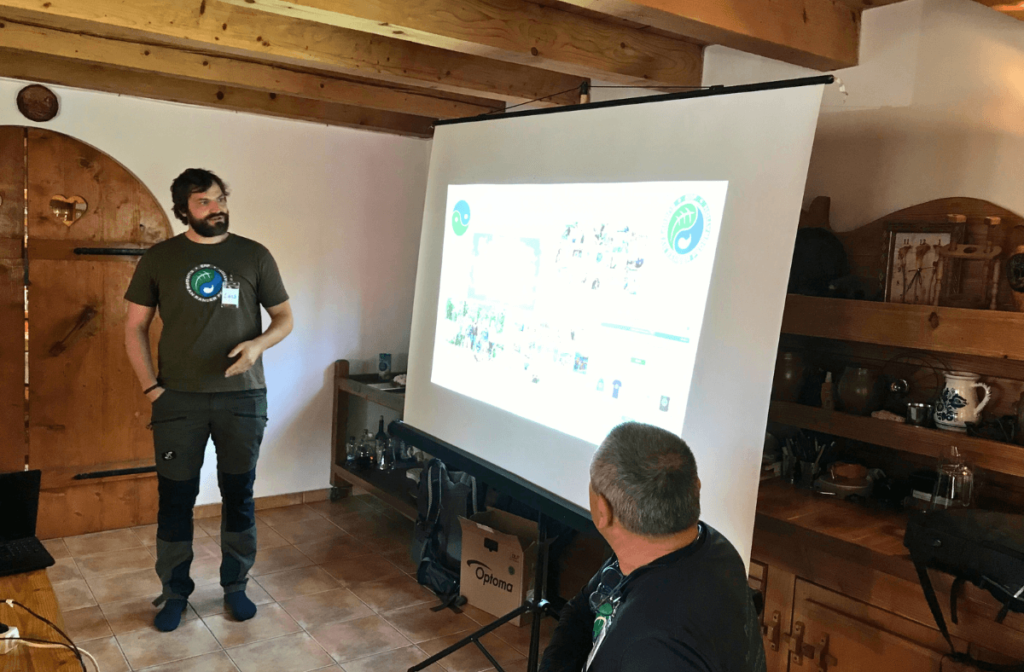
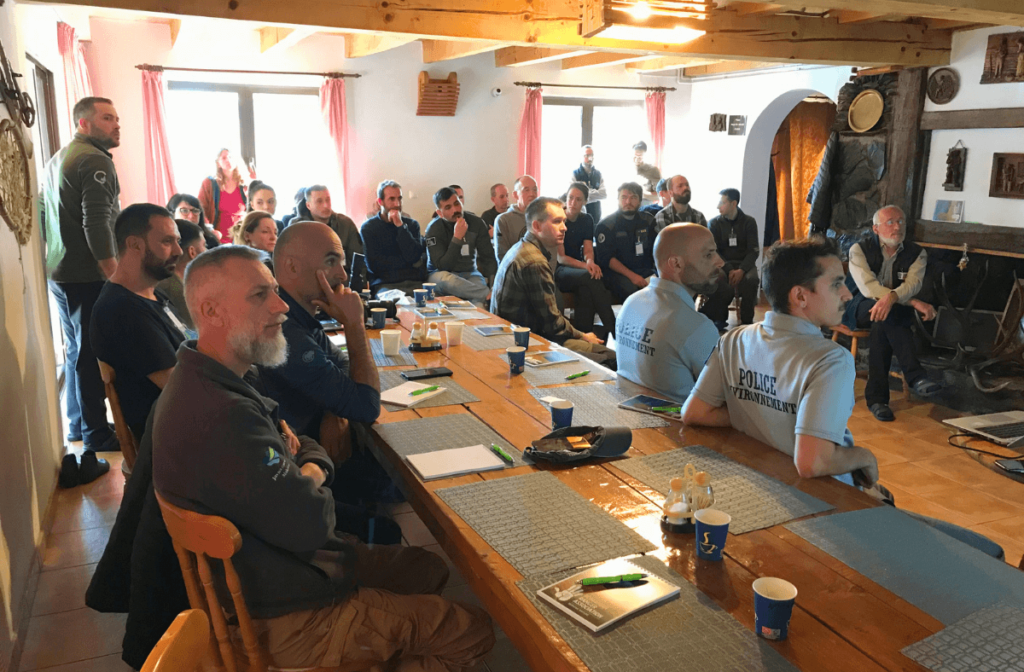
And the rangers from all over Europe learned from each other over the course of the days: from the courage of the volunteers in Moldova, who are currently establishing the ranger profession there themselves in place of the state, to the situation of rangers in war-affected Ukraine and Israel, to the different tasks of the rangers depending on their country of origin.
Notorious ranger spirit, reinforced by huge Romanian hospitality
But regardless of whether they come from Hungary, Croatia, Austria, Sweden or all the other home countries of the rangers: the ranger spirit based on a shared passion for untouched nature, notorious at so many international meetings, was also abundantly clear during the training week in Romania. And it was even reinforced by the great hospitality of the hosts at the Wittmann Hut and the fantastic on-site organization by Florin Halastauan.
“It’s great to get together, have this international mix and get new ideas about what other rangers are doing differently in their protected areas and what you could improve back home in your area”, as Austrian ranger Vanessa Zugriegel summarises.
editorial work for this
content is supported by


